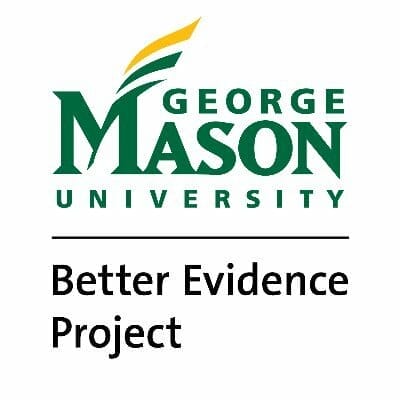Home > The Better Evidence Project
The mission of the Better Evidence Project (BEP) is to encourage and facilitate the use of evidence in the allocation of resources to reduce the amount of warfare in the world. Its work is based on the idea that hard evidence gained from experience is a better guide to action than intuition or guesswork.
A collaborative initiative, BEP is working with other peace organizations to create a large, easy-to-use collection of evidence about where and how peacemaking work can be most effective. As it identifies gaps in the available evidence, it is sponsoring research to fill them. At the same time, it is creating a hub to facilitate collaboration and sharing information and ideas among organizations in the field.
The BEP Resource Center will contain many kinds of useful information, from case histories showing what approaches have been most effective in what kinds of situations to scholarly works on the subject to other sources of relevant data and advice. The material will be coded so that users will be able to find relevant information easily and quickly. Several organizations are participating in working groups in designing and developing the Resource Center and field-wide efforts to encourage evidence-based peace work.
BEP is forming partnerships with experts through its referral network to provide another source of helpful information. By making evidence more easily available and by bringing professional networks together in its hub, BEP aims to contribute to a reduction of armed conflict.
Susan H. Allen directs the Center for Peacemaking Practice at George Mason University’s Jimmy and Rosalynn Carter School for Peace and Conflict Resolution and as Principal Investigator has overall responsibility for the Better Evidence Project. She is a scholar-practitioner of conflict resolution. Her main focus is on interactive peacemaking from a people-centered approach, and reflective practice and research that emerges from practice contexts. She has substantial expertise in intermediary roles and coordination amongst intermediaries, evaluation of conflict resolution initiatives, and theories of change, indicators of change, and evaluation in conflict resolution practice. She has engaged long-term in conflict resolution in the South Caucasus, as well as contributing to a variety of conflict resolution initiatives in Eastern Europe, Eurasia, the Caribbean, South America, and Africa.
Susan Allen joined the Carter School core faculty in 2005 after two years teaching International Peace and Conflict Resolution as Assistant Professor at the School of International Service at American University. This was a return to the Carter School. Dr. Allen’s Ph.D. (2000) and M.S. (1995) degrees are from the Carter School. Between graduate school and joining the faculty at the Carter School, she co-founded and directed the Alliance for Conflict Transformation (ACT) and served as Senior Program Associate for the Conflict Resolution Program at the Carter Center in Atlanta, GA.
Susan Allen’s current research centers on interactive peacemaking, people-centered approaches, and ways of building theory from practice. Her work has been supported by the US Institute of Peace (Peace Scholar award, Grant program), the One Foundation, USAID, the UK Conflict Pool, the US State Department, and the William and Flora I. Hewlett Foundation, Compton Foundation, Catalyst Fund (with ACT), and US State Dept (with ACT).
Susan Allen serves on the Editorial Boards of Caucasus Edition and Conflict Resolution Quarterly. She is on the Board of Directors of the Alliance for Conflict Transformation (ACT). She previously served on the Board of Directors of the Alliance for Peacebuilding, including as Chair of the Board in 2005.
SUCCESSFUL EXAMPLES
What works?
The Better Evidence Project at George Mason University was established to encourage the use of hard evidence as the basis for decisions about how best to reduce warfare. To do that, it is building a large, easy-to-use resource library and a hub for collaboration and exchange of information by members of the Peacebuilding community.
Encouraging stories
the cost of conflict
With the limited resources available to the peacebuilding field, focusing our resources on activities that are cost-effective will go a long way to determining the results we achieve.

Peacemakers have demonstrated many times that wars can be stopped or prevented, but violence continues.
We can assist local leaders in their efforts to bring peace to their communities.
SUCCESSFUL EXAMPLES
Encouraging stories
the cost of conflict
With the limited resources available to the peacebuilding field, focusing our resources on activities that are cost-effective will go a long way to determining the results we achieve.
Milt Lauenstein
Copyright 2023 © Less War.org | Powered by High Effect Web Design, New Hampshire.